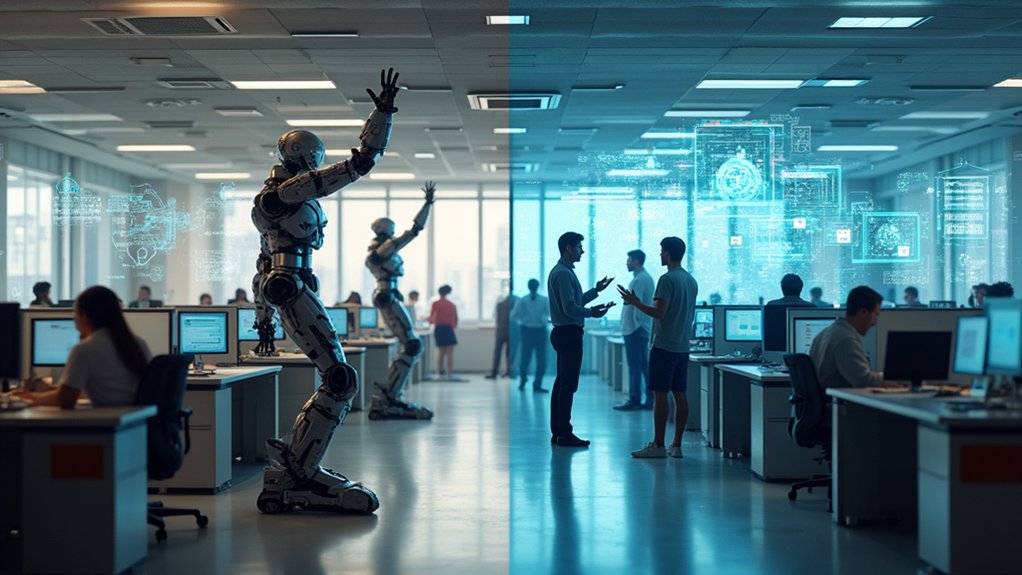By 2025, AI will dramatically reshape how we work – whether we like it or not. Companies are charging full speed ahead with automation, putting 77% of current jobs at risk. Customer service AI already handles 13.8% more inquiries than humans, while manufacturing and administrative roles face the chopping block. Young workers aged 18-24 are freaking out, and rightfully so. The transformation runs deeper than most realize, affecting everything from marketing strategies to infrastructure systems.

By 2025, artificial intelligence won’t just be a buzzword – it’ll be the new boss.
And guess what? Some workers are actually okay with it.
A surprising 15% of American workers would happily take orders from an AI supervisor, though they might want to be careful what they wish for.
The numbers are stark.
When reality hits, it hits hard. The data doesn’t lie, and the future of work looks radically different.
About 300 million jobs worldwide could vanish into the digital ether, with advanced economies taking the biggest hit.
A whopping 60% of jobs in developed countries are on the chopping block.
The young folks are freaking out the most – workers aged 18-24 are more than twice as likely to worry about AI stealing their jobs compared to their retirement-age colleagues.
Around 77% of jobs have tasks that are heavily exposed to AI automation.
A staggering 94 percent of employees already have experience using generative AI tools.
But here’s the kicker – not everyone’s equally doomed.
Low-income countries might actually dodge this particular bullet, with only 26% of their jobs at risk.
Why? Because robots still stink at physical labor.
Try getting an AI to fix a leaky pipe or build a house.
Not happening. Yet.
The usual suspects are first in line for the AI takeover.
Manufacturing? Toast.
Customer service? Already happening.
Administrative work? Better update that resume.
AI customer support agents are already handling 13.8% more inquiries per hour than their human counterparts.
Efficient? Yes.
Terrifying? Also yes.
But it’s not all doom and gloom.
About 20 million workers will pivot to new careers or learn to work alongside AI in the next three years.
The real story isn’t about total job elimination – it’s about transformation.
By 2027, about 23% of jobs will look completely different than they do today.
The shift won’t happen overnight.
Experts reckon it’ll take another 20 years to automate half of current tasks worldwide.
And here’s a plot twist: companies might only replace 23% of automatable wages because it’s cheaper that way.
So maybe humans aren’t completely obsolete after all.
Just mostly replaceable. Sleep tight!





